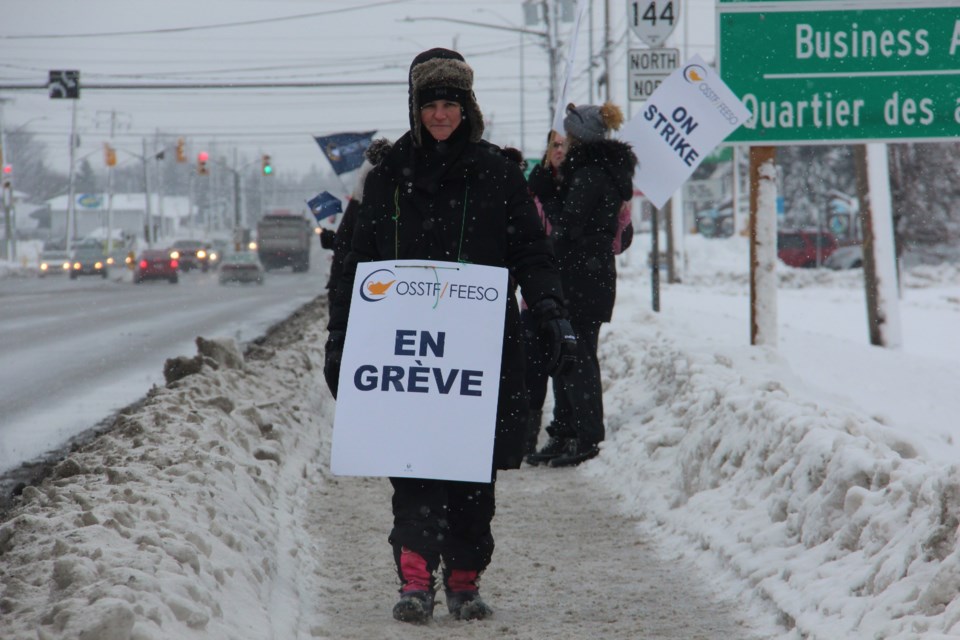While the Ontario Secondary School Teachers' Federation (OSSTF) would much rather quickly reach a negotiated settlement, “all options are on the table” in terms of ramping up job action, said the union's local president.
OSSTF District 3 President Eric Laberge made the comments Dec. 4 when asked about the possibility of a full strike during a visit to a picket line at Chelmsford Valley District Composite School.
OSSTF members across the province took part in a one-day strike Wednesday after the Ontario government and the union failed to reach a contract deal.
“We're trying to minimize the impact to the students and parents while still trying to apply pressure,” said Laberge, who represents 600 English public secondary school teachers, as well as educational support staff.
“So we're trying to strike that balance. But those decisions will be up to our central leadership in Toronto in terms of where we go to next.
“Ultimately we'd much prefer the two sides getting back to the table and having a negotiated settlement in the next few days.”
On Tuesday night, Education Minister Stephen Lecce asked the union to remain at the bargaining table, saying his bargaining team had presented a new "framework" to the union in a bid to keep all parties at the table.
Ontario's public high school teachers have been without a contract since August.
Lecce said the main issue in the talks is compensation, with the government recently passing legislation to cap annual wage increases for all public sector workers at one per cent for three years.
The union, which is also conducting a work-to-rule campaign, is asking for inflationary increases, which would amount to about two per cent.
Harvey Bischof, president of the OSSTF, dismissed the claim that compensation is the main issue as "outrageous."
Laberge said the real issues are the Conservative government's cuts, including plans to increase class sizes and introduce mandatory e-learning courses.
“With the current cuts that they are proposing, we are figuring it will be somewhere around 12 to 13 per cent of the workforce (will be cut) based on the projections that we have,” he said.
With less teachers will come less course offerings, Laberge said, as there will be less staff to teach them.
He said there is some value in online courses, but they're “not for everybody,” as some students learn better in the classroom.
“It's just another opportunity to farm out jobs to the private sector through e-learning consortiums that would deliver courses as opposed to teachers in the classroom,” Laberge said.
In response to Wednesday's one-day strike, the Rainbow District School Board cancelled classes for secondary school students for the day, as OSSTF represents the board's high school teachers.
The union also represents educational support workers at the local French public and Catholic boards, where classes were cancelled for students at all grade levels Dec. 4.
While Laberge concedes the job action was inconvenient for families, he said the impact of the one-day strike “will pale in comparison to the effects of the proposed cuts on the system over the long term.
“It would be devastating, and it would not even be comparable to the one-day inconvenience that people would have.”
-With files from Canadian Press
